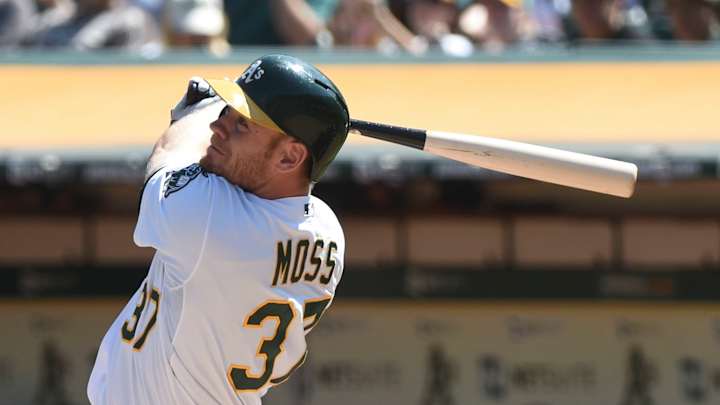A's Fate Could Have Been Different

There are three things that come to mind when thinking about the A's playoff fortunes over the past two decades and how if one of those series had involved a different outcome, maybe the team could have gone on to make a full run to the World Series. A title some time in the past 20 years would have changed the entire narrative around the team and potentially even led to a ballpark being built in Oakland by now.
One such instance that is less widely talked about on a large scale is how in 2012, after winning the AL West on the final day of the regular season, the team had to travel to Detroit for the first two games of the ALDS in a series in which they were in fact the better seed. They started that series down 0-2 before taking games three and four at home and then losing to Justin Verlander and his enormous strike zone in Game 5.
If the A's had won the first two games at home, would the Tigers have pushed Verlander to pitch Game 4 in Detroit to stave off elimination? That would have opened up a Verlander-less Game 5 in Oakland.
Game 1 starter Jarrod Parker also had big home and road splits, with a 2.61 ERA at home and a 4.54 ERA on the road. He gave up three runs, two earned, in that Game 1 start away from the Coliseum. Brandon Moss hit a ball to the wall in cold weather that would have went out and tied the game if the same ball had been hit in Oakland.
A lot could have been different in that series if the A's had played the first two games in Oakland. That season was magical for the fans, which is why, even after the team had been eliminated in Game 5, the fans stood and chanted "Let's Go Oak-Land!" There aren't many seasons or groups of players that connect with a fan base like the 2012 A's did.
The reason that Oakland started on the road that year was to take away a travel day for the Division Series with the newly implemented Wild Card game needing room on the calendar. That meant the home team in the series got the final three games instead of the typical 2-2-1 format.
Another A's team that got the short end was the 2020 squad. Obviously there were circumstances beyond anyone's control at play there with the global pandemic, but the season that the franchise had been gearing up for, and which would end up being the last in an A's uniform for Marcus Semien and Liam Hendriks, saw the A's play every game of their playoff series with the Astros at Dodger Stadium.
Would the A's have been able to compete with Houston if they'd played at the Coliseum and Matt Chapman out due to injury? It's unlikely, but they also looked overmatched by the Astros in that series after going 7-3 against them in the regular season. The ball was absolutely flying in Los Angeles and that benefitted the Astros a bit more than it did Oakland.
The final instance is also the most well known, and it's the Derek Jeter "flip play." In Game 3 of the 2001 ALDS with the A's up 2-0 in the series after winning the first two in New York, the A's were trailing 1-0 in the bottom of the seventh. Jeremy Giambi singled to right off Mike Mussina, and Terrence Long followed that up with a double that saw Giambi round third and go for home. The throw completely missed both cut-off men, but Jeter, serving as the backup on the throw, rushed to the first base line and flipped the ball to catcher Jorge Posada, who tagged Giambi on the back of the leg.
The discourse has always been around if Giambi had decided to slide, he may have been called safe. A's fans think he is safe. Yankees fans think he is out. Then there is this interesting tidbit from a piece in The Athletic back in 2020: "About an hour after Game 3, Howe was sitting in his office at the Coliseum. He heard his phone ring, but wasn’t expecting a call. It was home-plate umpire Kerwin Danley.“'He told me, ‘You know, if he had slid, he would’ve been safe,’” Howe said.'"
By the sound of it, the home plate umpire is admitting that the aesthetics of Giambi not sliding were what led to the out call. Even in a world with replay this would have been near impossible to overturn the call on the field. The next game Jermaine Dye fouled a ball off his shin, breaking his leg, and the series was effectively over for Oakland.
These three playoff scenarios have helped shape the narrative around the team over the past two decades. If one of them had ended up with the A's on the winning end, maybe the team wouldn't be looking for a relocation vote in six weeks. Instead, they'd already be years into their new ballpark in Oakland.
